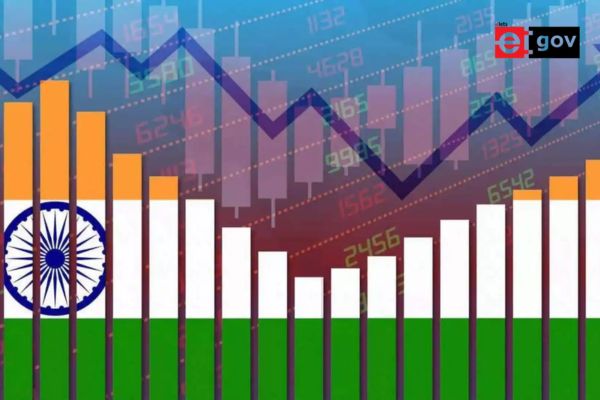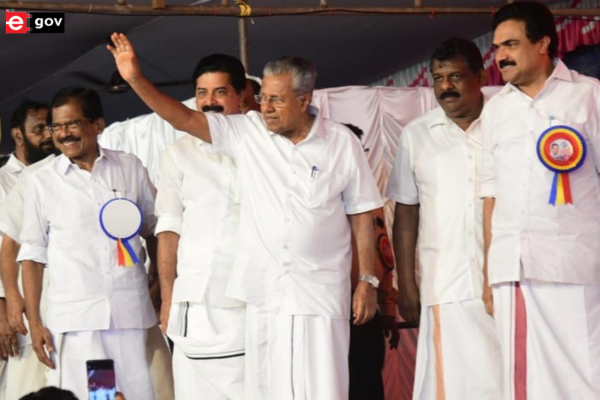
The Union Minister of Finance and Corporate Affairs, Nirmala Sitharaman, presented the Union Budget 2024-25 in Parliament today. The Budget introduces significant employment schemes and revises the tax structure under the new tax regime while maintaining the existing slabs in the old regime. Fundamental changes include substantially reducing customs duties for cancer medicines and mobile phones, with cheaper imports of gold, silver, leather goods, and seafood.
The 2024-25 Budget is seen as the Modi 3.0 government’s strategic plan to drive India’s development over the next five years. Prime Minister Narendra Modi praised the Budget, asserting that it will benefit all sectors of society and set the groundwork for a developed India.

Key highlights of the budget are as follows:

Budget Estimates 2024-25:

- Total receipts (excluding borrowings): ₹32.07 lakh crore
- Total expenditure: ₹48.21 lakh crore
- Net tax receipt: ₹25.83 lakh crore
- Fiscal deficit: 4.9% of GDP
- The government aims to reach a deficit below 4.5 per cent next year.
- Inflation: Low and stable, core inflation at 3.1%
Key Focus Areas: Employment, Skilling, MSMEs, Middle Class

- Prime Minister’s Package of 5 Schemes: Targeting employment and skilling opportunities for 4.1 crore youth over five years.
- New Skilling Scheme: To skill 20 lakh youth over five years and upgrade 1,000 Industrial Training Institutes.
- Internship Program: Opportunities in 500 top companies for one crore youth in five years.
Nine Budget Priorities for ‘Viksit Bharat’:
- Agriculture: Allocation of ₹1.52 lakh crore for agriculture, introduces 109 climate-resilient crop varieties, supports 1 crore farmers in natural farming, establishes 10,000 bio-input centres, and implements Digital Public Infrastructure for agriculture in 3 years.
- Employment & Skilling: The Prime Minister’s Package will skill 20 lakh youth in five years, revise the Model Skill Loan Scheme to offer loans up to ₹7.5 lakh, and provide up to ₹10 lakh for higher education loans for underserved youth.
- Inclusive Human Resource Development: Industrial nodes in Gaya and Andhra Pradesh, ₹3 lakh crore allocation for women and girls. 100 India Post Payment Bank branches will be set up in the northeastern region.
- Manufacturing & Services: MSMEs will benefit from a credit guarantee scheme without collateral, enhanced Mudra loans up to ₹20 lakh, and e-commerce export hubs. TReDS onboarding threshold reduced to ₹250 crore. Critical Mineral Mission and DPI applications will be developed for comprehensive sectoral support.
- Urban Development: Transit-Oriented Development Plans for 14 cities with over 30 lakh population. ₹10 lakh crore investment in urban housing, including ₹2.2 lakh crore central assistance under PM Awas Yojana Urban 2.0 for 1 crore families. Development of 100 weekly ‘haats’ annually for the next five years.
- Energy Security: Policies for energy transition, pumped storage, and advanced thermal power plants. A joint venture for an 800 MW Advanced Ultra Super Critical power plant and new regulations for hard-to-abate industries.
- Infrastructure: ₹11.11 lakh crore investment by the Central Government, ₹1.5 lakh crore long-term interest-free loans for states. Phase IV of PMGSY for 25,000 rural habitations and ₹11,500 crore for irrigation and flood mitigation projects.
- Innovation & R&D: National Research Fund, private sector research financing, and space economy expansion.
- Next Generation Reforms: Digitisation of land records, integration of e-shram portal, and simplified NPS plans.
Indirect Taxes
- GST: Simplification and expansion to remaining sectors.
- Customs Duty Adjustments: Reductions for medicines, mobile phones, precious metals, electronics, and marine products.
- Energy: Exemptions for solar energy capital goods.
Direct Taxes
Personal Income Tax:
Standard Deduction: Increased from ₹50,000 to ₹75,000.
Family Pension Deduction: Raised from ₹15,000 to ₹25,000.
Revised Tax Rates
Up to ₹3 lakh: Nil
₹3-7 lakh: 5%
₹7-10 lakh: 10%
₹10-12 lakh: 15%
₹12-15 lakh: 20%
Above ₹15 lakh: 30%
Corporate Tax:
- Abolishment of angel tax, reduced rates for foreign companies, and deepened tax base.
- Social Security and Other Proposals
- NPS Deductions: Increased employer contribution deductions.
- Equalization Levy: Withdrawal of 2% levy.
- Finance Bill Provisions: Simplified tax regimes for various sectors and increased monetary limits for appeals.
The Union Budget 2024-25 aims to bolster economic growth, foster inclusive development, and maintain fiscal discipline, laying a strong foundation for a ‘Viksit Bharat’.
Be a part of Elets Collaborative Initiatives. Join Us for Upcoming Events and explore business opportunities. Like us on Facebook , connect with us on LinkedIn and follow us on Twitter, Instagram.
"Exciting news! Elets technomedia is now on WhatsApp Channels Subscribe today by clicking the link and stay updated with the latest insights!" Click here!













